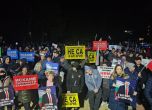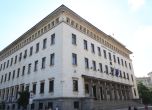
By André Oliveira
@andreufmg
BELO HORIZONTE, BRAZIL – When, in 2007, it was chosen to host the 2014 World Cup, and then, in 2009, the 2016 Summer Olympic Games, Brazil exhibited its role as the protagonist on the international stage to the rest of the world. This prominent position, however, has already existed for many years in South America and has now extended beyond the sub-continent borders; it’s the result of a series of internal struggles over the past two decades.
In the final years of the military regime (which came about after a coup, in 1964) and in the first years after the re-democratisation (1985), Brazil experienced numerous social and economic setbacks. The spectacular growth rates seen between 1968 and 1973 – 10%, on average – no longer remained in the 80s (referred to as the ‘lost decade’), primarily because of the oil crises (1973 and 1979) and the lack of liquidity in the Latin-American markets. Consequently, inflation increased – in 1989 it reached 1.973% per year -, foreign investments fell and Brazil’s foreign debt rose to alarming levels. Socially speaking, the economic crisis caused unemployment and widened social inequality.
In 1994, with the creation of the Brazilian Real – the country’s present currency -, Brazil turned a page in its recent history. The government of ex-President Fernando Henrique Cardoso (1995-2003; then-Minister of Finance in 1994) provided the necessary economic stability for social advances and the second cycle of high economic growth that occurred in the ‘Lula Era’ (2003-2011). With inflation under control (at 5.8% per year), favourable exchange rates, a good balance of trade, and an average growth of 4% per year – while, at the same time, the European economy showed signs of downturn and slowing down –, the two presidential terms of Luís Inácio Lula da Silva were highlighted, still, by the considerable social gains. Unemployment reached the lowest levels in history and the federal assistance programs, recognised and aplauded worldwide, helped to reduce inequality and bring 35 million people up to the status of middle class.
Today, Brazil’s economy is the 7th largest in the world, and, despite recent gains, it still faces numerous problems which need to be resolved, and challenges that need to be overcome. In Brazil’s major cities, slums – many of those without even basic sanititation – contrasts with the luxury commercial and residential buildings; thousands of cars wage battles with each other on the streets and avenues due to the inefficient public transport system; violence, in turn, scares and kills thousands of Brazilians, every year, who are also in need of good-quality public health and education systems.
Brazil, due to its economic stability, proved that it was financially ready to host two major events in such a short space of time. However, the increased spending on stadiums and temporary structures for the World Cup – many of which are overpriced – led, in 2013, to thousands of citizens taking to the streets in protests rarely seen in the recent democratic history of the country. Brazilian citizens asked, and continue to ask, the same question: “Why invest billions in such a huge sporting event, if we do not have standard quality healthcare, education and public transport?”. Just days before the World Cup begins, criticism and challenges still remain. In several cities new protests are expected within the next few weeks. Has this giant of Latin America – the country known so well for its football and samba - finally woken up?
(translated from Portuguese by Ben West)
The author ANDRÉ PINTO DE SOUZA OLIVEIRA, 28, Brazil, graduated from the Federal University of Minas Gerais (UFMG), is lawyer, instructor and specialist in Environmental and Constitutional Law through the University of Lisbon (Portugal)




















































Моля, регистрирайте се от TУК!
Ако вече имате регистрация, натиснете ТУК!
Няма коментари към тази новина !
Бебе с рядко заболяване бе излекувано в АСК УМБАЛ Токуда
Когато па.., когато па...: Кметът на Ботевград забрани менте протеста на Пеевски
Ловна хижа на Чаушеску е обявена за продан. Началната цена е 1 млн. евро
Световната банка ще помага на България за по-ефективна жп инфраструктура